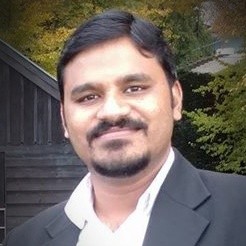Artificial Intelligence and Machine Learning Full Stack
CloudLabs
Projects
Assignment
24x7 Support
Lifetime Access
.
Course Overview
This comprehensive course is designed to provide hands-on training on artificial intelligence (AI) and machine learning (ML) to individuals and corporate employees, starting from the beginner level and progressing to advanced topics. The course is divided into five levels, with each level building upon the previous level. The course covers a range of topics including programming, statistical data analysis ,machine learning algorithms, deep learning techniques, and natural language processing. Participants will have the opportunity to work on two mini-projects to apply their learning in real-world scenarios.
At the end of the training, participants will be able to:
- Understand the concepts and principles of artificial intelligence and machine learning
- Develop and deploy machine learning models
- Work with deep learning techniques for complex data analysis
- Implement natural language processing in real-world scenarios
- Use programming languages and databases for data analysis
- Perform statistical data analysis for effective decision-making
- Work on mini-projects to apply their learning in real-world scenarios
Pre-requisite
Duration
30 days
Course Outline
- Introduction to programming languages such as Python and their applications in AI and ML
Data types, variables, operators, and functions
Control statements and loops
Introduction to databases and SQL
Data manipulation and management using SQL
Hands-on Labs:
Setting up Python and Jupyter Notebook
Python Basics and Syntax
Working with variables, data types, and operators
Control statements and loops - Introduction to SQL
Data manipulation using SQL
- Descriptive statistics
Probability theory and distributions
Inferential statistics
Hypothesis testing
Regression analysis
Introduction to data visualization
Hands-on Labs:
Descriptive statistics with Python
Probability and distributions with Python
Inferential statistics and hypothesis testing with Python
Regression analysis with Python
Introduction to data visualization with Python
Data visualization with Matplotlib and Seaborn
Mini-Project 1:
Analyze a dataset and provide insights using statistical data analysis and visualization techniques
- Supervised and unsupervised learning
Decision trees and random forests
Linear and logistic regression
Support vector machines
Clustering algorithms
Model selection and evaluation - Introduction to Machine Learning with Python
Supervised Learning – Linear Regression
Supervised Learning – Logistic Regression
Supervised Learning – Decision Trees and Random Forests
Unsupervised Learning – Clustering
Model Evaluation and Selection
Mini-Project 2:
Develop and deploy a machine learning model for a real-world use case
- Neural networks
Convolutional neural networks
Recurrent neural networks
Deep learning frameworks such as TensorFlow and Keras
Hyperparameter tuning
Hands-on Labs:
Introduction to Deep Learning
Neural Networks with TensorFlow and Keras
Convolutional Neural Networks
Recurrent Neural Networks
Hyperparameter Tuning
Transfer Learning
- Text preprocessing and cleaning
Text classification
Named entity recognition
Sentiment analysis - Language translation using neural machine translation
Chatbots and voice assistants
Hands-on lab: Participants will implement natural language processing algorithms using Pythonand libraries such as NLTK and spaCy.
Methodology: The course will be conducted through a mix of theoretical lectures, hands-on practical sessions, case studies, and group discussions .Participants will work on two mini-projects to reinforce their understanding of the concepts covered in the course. Participants will
also have access to a learning management system where they can access course materials, videos,
Reviews
"The corporate training provided by Greater Insights was truly exceptional. The trainers were highly knowledgeable and engaging, making the sessions both informative and enjoyable. I gained valuable insights and practical skills that I immediately applied in my work. I highly recommend Greater Insights for their professionalism and expertise."
Rahul NiraniaSamsung 
"As a participant of the corporate training program organized by Greater Insights, I was thoroughly impressed with the level of customization they offered. They took the time to understand our specific needs and tailored the training accordingly. The trainers were fantastic, and the interactive sessions fostered an environment of active learning. I am grateful for the valuable knowledge and skills I acquired."
Bhawna TiwariSamsung
"I cannot express enough gratitude to Greater Insights for the outstanding corporate training they provided. The trainers were not only experts in their respective fields but also incredible communicators. They created a dynamic and collaborative learning environment, which allowed us to learn from one another. The training surpassed my expectations, and I would eagerly participate in any future programs they offer."
Ashutosh SinghSamsung 
"Attending the corporate training sessions organized by Greater Insights was a game-changer for me. The trainers were not only experienced professionals but also inspiring mentors. They equipped me with practical tools and strategies that have significantly enhanced my productivity and efficiency at work. I wholeheartedly recommend Greater Insights to anyone looking to excel in their professional endeavors."
Somashekar MuniyappaInfogain 
"The corporate training program offered by Greater Insights was an enlightening experience. The trainers had a deep understanding of the subject matter and were able to break down complex concepts into easily digestible information. The interactive activities and case studies made the training engaging and relevant to our day-to-day work challenges. This training has undoubtedly boosted my confidence and competence."
Amresh DiwanInfogain 
"I had the privilege of participating in a corporate training program organized by Greater Insights, and I must say it was a transformative experience. The trainers' expertise and passion for their subjects were evident in every session. The training materials provided were comprehensive and well-structured, enabling us to grasp the content effectively. I am grateful for the valuable skills I acquired, which have greatly contributed to my professional growth."
Namratha BabuTorry Harris 
"The corporate training sessions conducted by Greater Insights were simply outstanding. The trainers went above and beyond to ensure that we understood the concepts thoroughly. The interactive nature of the sessions encouraged active participation and enhanced our learning experience. I am truly grateful for the practical strategies and techniques I learned, which have had a positive impact on my work performance."
Rahul BhashyamTorry Harris 
"Participating in the corporate training program organized by Greater Insights was an enlightening experience. The trainers were not only knowledgeable but also skilled at delivering the content in an engaging manner. The training materials were well-designed, and the real-life examples provided valuable insights. I am confident that the knowledge and skills I gained will significantly contribute to my professional growth."
Deepti JainTorry Harris 
"I can confidently say that the corporate training provided by Greater Insights was top-notch. The trainers were highly experienced and had a knack for simplifying complex concepts. The training sessions were interactive and encouraged open discussions, which fostered a collaborative learning environment. The practical skills I acquired during the training have proven to be invaluable in my day-to-day work."
HARSHAL TRIVEDIL&T TS 
"Greater Insights exceeded my expectations with their corporate training program. The trainers were not only experts in their fields but also exceptional communicators. They effortlessly connected with the participants and ensured everyone's active involvement. The training content was comprehensive and provided a solid foundation for professional growth. I am grateful for the opportunity to learn from such seasoned professionals."
Namrata PillayL&T TS
"The corporate training facilitated by Greater Insights was exceptional in every aspect. The trainers were engaging and created a positive and inclusive learning environment. The training materials were well-structured and easy to follow, making the learning process enjoyable. The practical exercises and case studies allowed me to apply the knowledge immediately, resulting in improved job performance. I highly recommend Greater Insights for their commitment to excellence."
Sandhya M SanuHoneywell
"I recently attended a corporate training program organized by Greater Insights, and I am incredibly impressed. The trainers were not only knowledgeable but also highly skilled at delivering the content in a relatable manner. The training sessions were interactive and encouraged open dialogue, which made the learning experience engaging and dynamic. The practical skills I gained have already made a significant impact on my professional growth."
Neha SahayHoneywell
"I had the privilege of participating in a corporate training program conducted by Greater Insights, and it was truly transformative. The trainers were passionate and dedicated professionals who took the time to address our individual needs. The training sessions were interactive and encouraged active participation, allowing us to learn from one another's experiences. I am grateful for the knowledge and skills I acquired, which have undoubtedly propelled my career forward."
Abishek KalliparambilAllianz 
"The corporate training program offered by Greater Insights was a remarkable experience. The trainers had a wealth of knowledge and were adept at imparting it effectively. The training materials were comprehensive and provided valuable resources for further exploration. The interactive activities and practical exercises helped me internalize the concepts and apply them in real-world scenarios. This training has been instrumental in my professional development."
Kishor KumarITC Infotech 
"I cannot thank Greater Insights enough for the incredible corporate training they provided. The trainers were not only subject matter experts but also skilled at creating a positive and inclusive learning environment. The training sessions were well-structured, and the trainers ensured that we understood the content thoroughly. I am grateful for the valuable insights and skills I gained, which have already made a noticeable difference in my professional life."
Anitha PrashanthIndegene 
